Two Tractile companies in liquidation after $440,000 court orders over unlicensed roof work
A nightmare roof installation left Mount Tamborine couple’s brand new home uninsured for years as they worried it would be destroyed by storms and bushfires. Find out why.
Business
Don't miss out on the headlines from Business. Followed categories will be added to My News.
When a commercial pilot and a Japanese diplomat found a plot at the picturesque peak of Tamborine Mountain, they hoped to build their dream home – a jaw-dropping off-grid mansion nestled in the rainforest.
Meanwhile, a Gold Coast stockbroker spruiked his own dream of creating an ASX-listed roof tile venture, courting investors with his hopes of taking on Elon Musk in the solar power industry.
But the union of these lofty dreams has turned into a nightmare with a drawn-out court battle leaving two companies in liquidation and a Gold Coast couple hundreds of thousands of dollars out of pocket.
Court documents have revealed a years-long dispute between Steven Quilkey and his wife Yukiko Nozaki with Southport company Tractile, which manufactures and supplies roofing tiles and slimline solar panels.

Dream home
The pair had found and fallen in love with the eight-acre mountaintop property in 2001.
They worked to revegetate more than five acres of it with native rainforest plants while Ms Nozaki sketched out a design for the ambitious off-grid home of their dreams.
Featuring vast windows, soaring ceilings and an infinity pool hovering to the Gold Coast skyline and sea, the vast project was reminiscent of an episode of the TV show Grand Designs.
In 2018 they were finally ready and took turns living a month at a time in a small cottage on the land to oversee the build.
“We’d worked hard enough and saved hard enough to have the home,” Ms Nozaki said.
“Steve would come one month, then I’d come the next month
“But in March 2020, I got stuck here, and Steve got stuck in Hong Kong – his airline Cathay Dragon was closed and international flights stopped. We were stuck in two different countries.”

Despite the setback, the build was relatively smooth – until it came to the installation of the Tractile roof, which was supposed to generate power for the property, heat water for the home and pool and gather rainwater.
But the roof tiles took up to five months to install, and Tractile never installed the solar inverter, batteries or hot water tank, court documents reveal.
The couple were awarded more than $440,000 in restitution and damages in November 2023, after District Court Judge Bernard Porter KC found Tractile had breached its installation contract with them, and had not been licensed to perform the work.
A claim against Tractile director Jason Perkins was dismissed by the court.
The couple had only been paid half the court-ordered amount before the two Tractile companies that owe the debt were placed into liquidation on March 27.
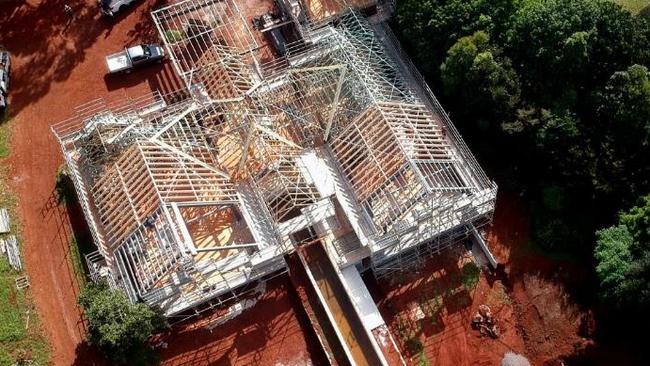
‘Significant and justifiable concern’
Evidence given in the case said Ms Nozaki developed “severe rashes” after drinking rainwater collected from the Tractile roof.
The Judgment said the Tractile roof tiles were coated in Malaysia with Kossan paint that was “not certified as safe for collecting drinking water”.
“While the plaintiffs did not seek to establish this condition was caused by the Kossan paint, the allegations ... certainly caused significant and justifiable concern about that possibility.”
The couple did not pursue medical damages from Tractile.
Mr Perkins said tests commissioned by Tractile after it installed the couple’s roof had shown its paint products met Australian Standards.
He denied Ms Nozaki’s illness was caused by using the water harvested on the roof.
“I am neither informed in the details nor a medical practitioner and cannot provide meaningful comment on any claimed health issues of Ms Nozaki, whether physical or mental, whether real or imagined, and prefer to respect her privacy in such matters,” Mr Perkins said.

‘Shambolic’ roof install
According to the court documents, much of the work on the roof was done by an out-of-town worker known only as “Jedd”, who slept in a car with his dog for the duration of the project.
Mr Perkins and fellow director Swibertus “Bertio” Terpstra also pitched in with the installation, the documents said.
When the home was completed, its owners were unable to gain final occupancy approval – or insurance – as the roof could not be certified.
The Quilkeys were finally able to have their home approved in January 2023, after they replaced the roof.
“The house was only insured last year – when storms came, when the bushfires were raging – our home was uninsured,” Ms Nozaki said.
Judge Porter described installation of the couple’s roof as “shambolic both practically and from a compliance perspective”.

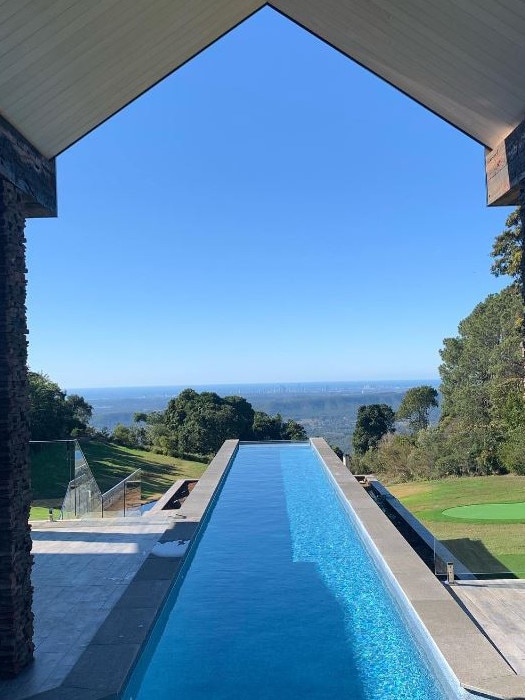
Mr Perkins said Tractile had made a “technical and administrative error” in its contract for the Quilkey’s home.
He said he and Mr Terpstra had been “excited” about the project and had provided “general help” on site.
“We also would have mucked in carrying parts to help to get the job done,” he said.
“Tractile is a small company, having a go, and directors will get hands on to help out as needed to get a job done.”
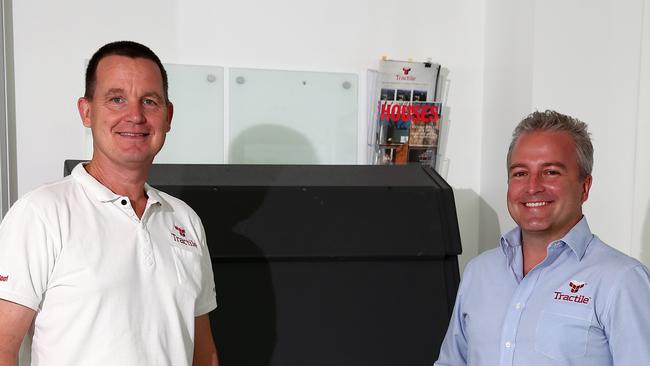
Unreliable witness
Judge Porter found the couple and their builder were frank and reliable witnesses, and that “Mr Perkins was not a reliable witness”.
“I formed the view that Mr Perkins had a poor recollection of events and was reconstructing much of his evidence,” the judgment said.
The judge described Mr Perkins’ evidence about the licensing issue as “not believable”, saying it “had no credible basis and reflected an unjustified attempt to shift responsibility for the lack of licensed work … to the plaintiffs”.
“I do not accept any of Mr Perkins’ evidence unless corroborated by other evidence I accept.”
Judge Porter said Mr Terpstra was also an unreliable witness, saying “his enthusiasm for his product led him to give evidence which was not objectively credible”.
Mr Perkins said the directors were “disappointed by the judgement”.
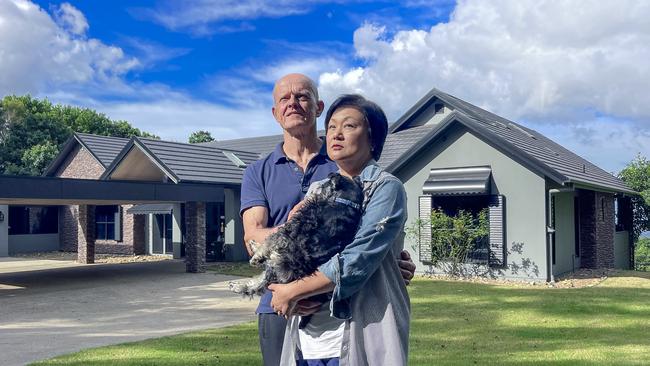
Consecutive losses
Tractile raised investor capital and established operations in Australia, the United States and Malaysia where the products are manufactured.
A bid to be listed on the ASX, when the company was chaired by corporate heavyweight and long-time Medibank director David Fagan, failed in 2016.
The company’s most recent financial report said it was suffered annual losses of $1.2m in FY23 and $950,000 the previous year, which were covered by its cash reserves.
It had $2.8m left in the bank as of June 30, 2023.
Ms Nozaki said Mr Fagan’s involvement and previous public endorsement of Tractile had given the couple confidence in the company.

Mr Fagan said he retired from Trac Group Holdings in 2016 and had never been a director of the companies in liquidation.
“I have had no involvement with Trac, other than as an investor, or any related company in any capacity since July 2016,” he said.
“The events relating to the Mount Tamborine roofing project seem to have occurred in 2018-2019 onwards.
“This was at least two years after I ceased my involvement with Trac.
“I have had a Tractile roof, albeit without solar panels, for over nine years and it continues to perform well.”
Mr Perkins said the group was reviewing its operations as “general market conditions combined with the legal dispute have placed financial strain on the group”.
“Our vision and passion remains to build Tractile, a company founded on the Gold Coast, into an international brand.”
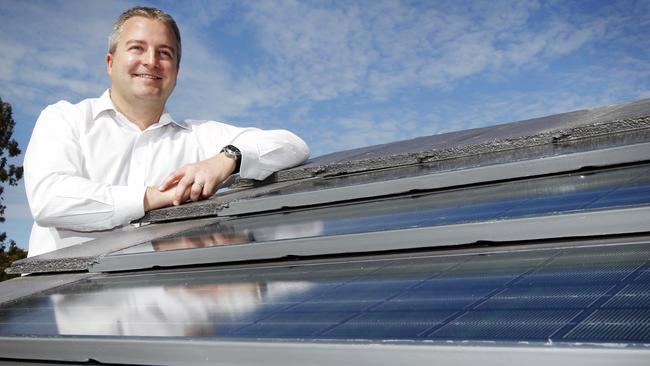
‘What’s the point of the QBCC?’
Queensland’s building regulator fined Tractile $6787 for a range of offences, however, its work on the Mount Tamborine home was not found to be defective and Tractile was not found to be a non-conforming building product.
Ms Nozaki and Mr Quilkey believe the regulator should have done more to help.
“The QBCC really failed me, they are supposed to be protecting the consumers like us,” she said.
“We appealed to the QBCC – ‘help us, we’ve got a dodgy roof and no-one is paying us back’.
“They didn’t do anything – because (Tractile) didn’t have a licence and didn’t pay their QBCC fee, the QBCC said they have nothing to do with it.
“What’s the point of the QBCC?”
The QBCC said it could not answer questions on individual cases but said it “diligently enforces legislation that protects the safety and wellbeing of consumers and building industry participants”.
“The QBCC has a range of regulatory options to address offences committed by individuals and companies, including penalty infringement notices and warning notices, as well as prosecution and disciplinary actions,” it said.




